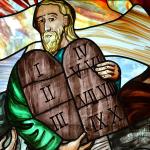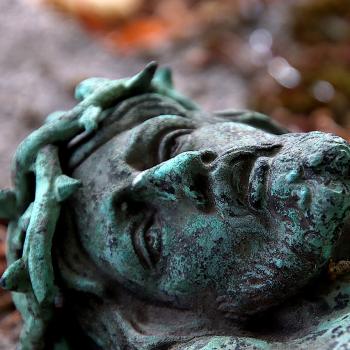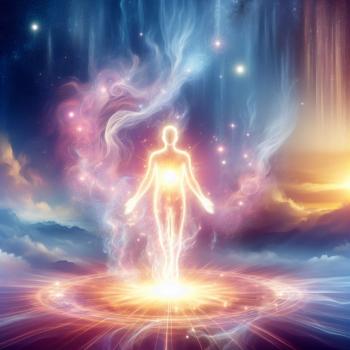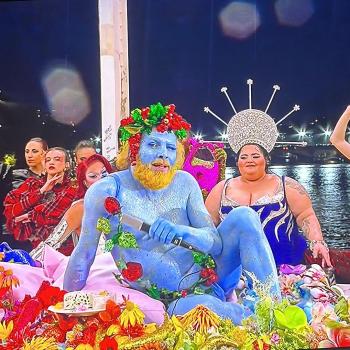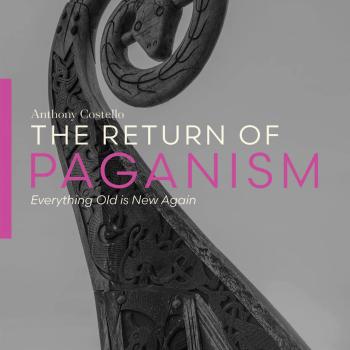One of the great skeptics of the 18th century, Gotthold Lessing, coined a phrase to describe what for him was an unbridgeable gap between the 18th-century enlightened mind and the purported supernatural events of the Bible. Lessing called this gap the “ugly broad ditch,” a chasm in knowledge that made it unreasonable for someone in the 18th century to believe in miracles and, consequently, much of the New Testament. For Lessing, since miracles did not occur in his time, the likelihood of them having never occurred at all was high. As such, the historical claims made by the Apostles and recorded by the writers of Scripture were too unreliable to put one’s faith in.
In Lessing’s thought, the contingent, or “accidental,” events of history could not be the basis for a rational belief in what had to be universal and necessary truths of religion. Whether or not historical claims were true, was leaving too much to chance and to fluctuations in the kinds and degree of evidence for those claims. This inherent susceptibility of historical testimony to skepticism made belief in any supernatural features of that testimony unjustified. If one was to accept only what was rational for an 18th century person to believe, one would have to forgo belief in the miracles relayed in the Scriptures, and consequently the idea of their being any historical basis for Christianity’s grand theological claims.
Still, why think that Lessing’s “ugly ditch” is really there? Why believe either that religious claims must be grounded in necessary truths, like those of mathematics, or that the historical evidence for miracles was in the 18th century no longer valid, while it seems that in the 12th century it still was?
Religious Claims and Necessary Truths
First, the claim that religious truths cannot be left to the evidence of history is itself question-begging, since there is no reason to think that religious truths must be self-evident or necessary in the same way that “2+3 = 5” or “there are no married bachelors” are necessary or self-evident. Moreover, it could be that specific religious revelation (e.g. the Bible), if granted, gives us good theological reasons for why religious truths are not self-evident truths, like analytic statements, and why they are not necessary truths, like those of math and logic (the modal ontological argument perhaps excepted).
For example, if human freedom is valuable and if interpersonal love must be freely chosen to be genuine, then there is an explanation for why some religious truths are fundamentally different from other truths, like those of logic. If a degree of intellectual uncertainty is needed for one to make a genuinely moral or personal decision freely, i.e., to exercise a degree of faith in something or someone, then it would make sense that God’s existence or the Lordship of Jesus Christ remain, in part, clouded from our reason.
After all, if I knew beyond a shadow of a doubt that marrying my fiancee would make my life perfectly happy, then my decision to do so would hardly be morally commendable. If I could see marrying her would lead to “x” result in the same way I see that if Sally is taller than John and John is taller than Beth then it results in Sally being taller than Beth, could I really say that my decision to marry my fiancee is a morally virtuous one?
Jesus seems to demonstrate this notion in John’s Gospel when he rebukes Thomas (John 20:24-29), who had to see Jesus physically before he could believe in the resurrection (the testimony of his trusted friends being insufficient for him). Of course, that we may one day see that God exists or know that Jesus is Lord in the same way we see that “2+3 = 5” or now know, as Kripke demonstrated, that water is H2O, is also alluded to in the Scriptures (1 Cor 13:12-13; 2 Cor 4:3-6; Phil 3:7-11; 2 Cor 12:1-10).
What about Lessing’s second contention: that historical evidence is too shaky to believe in the miracles of the Bible, or that there was too much temporal distance between himself and those events to justify belief in the New Testament?
Miracles and Historical Testimony
Begging the Question
One obvious reason to reject Lessing’s claim is his assumption that miracles did not occur in the 18th century. Much of his argument seems to ride on the fact that if one has not experienced miracles personally, it follows that people today, or in the past, also did not experience miracles. Seeing for Lessing would indeed be necessary for believing, as it was for Thomas. Although perhaps we should give the grieving Thomas a bit more grace than the sober Lessing.
Lessing, therefore, begs the question whether or not there were credible miracle claims circulating in his own time. Like Hume, Lessing simply assumed that there simply were no valid miracle claims. Hume also thought that such claims were mainly to be found among the more “barbaric and ignorant” peoples of the world. A claim he did not have empirical evidence for or against. Either way Lessing, like Hume, argues circularly, simply asserting that contemporary miracles claims are not reliable.
The Chain of Testimony
There is another problem with Lessing’s understanding of miracle claims as it relates to the generational chain of historical testimony. For, it is not simply that the eyewitnesses to Jesus’ apparent miracles, or to the apparent Resurrection, claimed to have experienced miracles. In fact the entire early church–all subsequent Christian communities that persisted past the original eyewitnesses– also believed in those miracles. Those historically and culturally closest to the original testifiers of Jesus’ miracles had no problem believing them, unlike Lessing who, being further removed in time, could not. But, temporal distance alone seems hardly sufficient to dismiss the validity of a historical claim.
While it could be the case that the earliest, non-eyewitnesses were simply duped by the so-called eyewitnesses (e.g. Peter, Paul, the Marys), this would entail that all, or many, of the early Christians (young, old, rich, poor, peasant, aristocracy) were equally susceptible to the lies of these original Apostles. They (the early Church members) basically believed the testimony of the Apostles without any independent, corroborating evidence to support the idea that things like miracles happened. This means that none of these early Christians, many of them eventual martyrs, had ever seen or heard of a credible miraculous event in their own time. Yet, supposedly, they still believed the Apostles’ oral testimony, or the later written testimony, to the same or similar kinds of events in their time.
Did The Early Church Lie?
If not duped, however, then the only other option is that early followers knew for themselves the stories were false, yet propagated them in spite of knowledge about their falsehood. If this were the case, then the earliest Christian communities, to include their leaders, would be implicated in the greatest conspiracy of all time– propagating known falsehoods about miraculous events, events that never occurred, over a vast geographical space and an extended, continuous period of time. For what purpose they would have done this, we have no idea. That they were able to maintain that known falsehood for so long, and across so many cultures, might itself be considered more miraculous than the Resurrection they claimed occurred.
Further, it is hard to believe that these earliest Christian communities would continue to propagate known falsehoods only to enjoy the social ostracism, imprisonment and even the torture and death that ultimately befell many of them. This was hardly a win-win situation. In fact it was clearly a lose-lose: lose if you are persecuted for telling the known falsehood and lose even if you are not. After all, you would know there is no real, redeeming content to the faith you claim to hold– something made explicit by the Apostle Paul himself (see 1 Cor 15:12-19).
Did They Have Good Reason to Believe?
On the other hand, one reason why the early Christians might have believed in the purported miracles of the Gospels is that they had independent evidence that miracles occurred in their own times, a fact that would begin to undermine Lessing’s critique. Lessing’s critique begins to fade if belief in contemporary miracles, say in the 2nd century, bridges the epistemic gap about supernatural claims between 2nd century Christians and the 1st century Apostles.
Thus, if this belief in contemporary miracles by post-Apostolic, early Christians was part of the reason why they believed the miracle stories passed on by the Apostles– orally or in Scripture– then the question must be asked: “When, or at what point in time, or even in what place in time, did this epistemic bridge from one generation to the next regarding belief in miracles collapse? When did the “ugly ditch” actually get dug?
The question can also be formulated this way: at what point in history did testimony about specific miracles, either the ones mentioned in Scripture, or in ones ongoing, cease to be a valid source of evidence for justified belief in miracles?
The Seamless Testimony from The Apostles to Today
It seems that for the vast majority, historical testimony to miracles was still a valid source of evidence in the 2nd and 3rd centuries, as well as in the 4th, 5th, 6th, 8th and all the way through to the 14th and 15th centuries. Further, geographically, this validation would appear to be nearly universal. There is not an abundance of skeptical literature about either ancient claims to miracles, or contemporary ones, in the 16th century either (although skepticism about Natural Theology begins with the likes of Michel de Montaigne around this time). That is not to say that there are not any critiques of miracle claims prior to the 16th century, but just that the abundance of evidence is to the contrary: most people accepted the reality of miracles up to Lessing’s day.
So, when does Lessingische skepticism toward human testimony about miracles first emerge in history? When does the “ugly ditch” get dug, especially if the majority of people up until the 18th century did hold that testimony about miracles was reliable? Who or what ultimately digs this ditch? We cannot just assign some arbitrary date; as if in 1748, on a Thursday at 5:45pm GMT, all miracle claims, both ancient and contemporary, became subject to the skepticism of 18th century man and therefore irrational to believe!
The reason for Lessing to reject justified belief in miracles is not that the historical testimonies were ever demonstrated to be false or that the temporal gap between the New Testament miracle claims and Lessing’s belief about them is too great. Clearly it would be one thing to pick up some ancient text no one had read in several hundred years, comprised with fantastic stories in it and say: “Eh, these are ancient stories filled with claims of things we have never seen before. Why believe they really happened?”
But, when you have a historical lineage, a succession of real, human communities called “the Church” that has passed on these beliefs, and passed them on often under very unfavorable conditions, then you have some additional reasons to believe that what was being passed on was not just some mythology. It was something real enough that people were willing to stake their physical lives and their cultural identity on its being true. Very few philosophies have garnered that kind of dedication in both belief and practice (Marxism being an exception), even ones who limited their truth claims to those that could be considered necessary or self-evident.
Lessing’s Personal Skepticism
It seems therefore that the reason Lessing felt belief in miracles was unjustified was the simple fact that he never experienced one personally. So, there really is no argument about whether older, or contemporary, testimonies about miracles are false other than to say: “I never saw one, therefore all testimonies to miracles are false, or at least unreliable.”
Now, if the writings of the New Testament were mere fabrications, at least in regard to reports about its miraculous events, then the entirety of the early church, starting with men like Polycarp and Ignatius, moving forward to Irenaeus and Origen, up on through Augustine, Boethius, and Aquinas, to Luther and the Reformers, through the great puritan thinkers of the 17th and 18th-century, to today’s analytical philosophers of religion, are all in some way implicated in the continued fabrication of said miracle stories– for each generation going back to the first would have known that the miracles reported by the Apostles were false and thus irrational to believe, and yet passed them off as being true. Or, if not liars, there has been a persistent, almost seamless strain of men and women being “fooled” into thinking something incredible happened that did not happen, and that based solely on the fact that someone told them so.
After all, if miracles do not happen then literally no one, not Clement of Rome, not Ignatius, not Polycarp, not Jerome, not Augustine, not Aquinas or Edwards, nor Lewis or Ratzinger, Swinburne or Polkinghorne or you or me or this philosopher has ever experienced anything themselves, or heard any credible account in their own time that would give them warrant that the claims made by the Apostles, or found in the Scriptures, are reasonable to believe. Talk about a leap of faith by men who could hardly be called “barbaric or ignorant” by the likes of Hume or Lessing.
Conclusion: Bridging the Chasm
What is more likely then?
More likely is that thousands, if not millions, of Christians (and non-Christians) throughout the Church’s history have experienced miracles in their own times. This fact adds to the justification for belief that the miracles reported in the Scriptures actually occurred. One contemporary compendium documents testimonies from every continent, most of which are healing miracles, but some of which go beyond that. Include the most recent evidence for things like NDE’s (Near Death Experiences) and it may start to like as if our earlier suspicions about the supernatural may actually turn out to be necessary truths (in the a posteriori sense). Empirical confirmation of the supernatural through miracles might show that the existence of the supernatural is an a posteriori synthetic and necessary truth.
That said, some miracles in the Bible might be harder to accept than others in virtue of seeing more of one kind of miracle today than other kinds. Still, a miracle is a miracle if the improbability and unique character of an event cannot be explained by the convergence of natural processes alone. It is either that or it is that Christians (and non-Christians) from the very beginning have been fooled into thinking that incredible events for which they have no independent reason to believe happened, except it was told to them, really happened.
In the end Lessing dug his own ditch, and did so because he was seeking absolute certainty. But, absolute certainty is not forthcoming about anything in this life outside of a very limited set of claims. Lessing’s concern about the shifting sands of time may have been warranted, but his ultimate conclusion on where to place his faith was not. What Lessing perhaps should have done is believed in the preponderance of evidence– a preponderance that points to the reality of miracles, both in 1st-century, in the 18th and today.
For additional evidence for the reality of miracles in our own times, see this interview with J.P. Moreland, considered one of the top 50 philosophers alive today.




